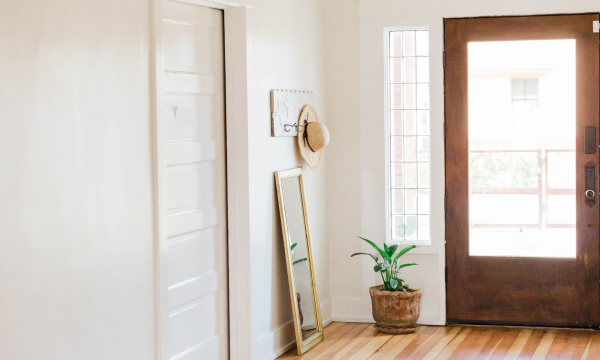Buying your first home is a huge milestone. It’s exciting, a little overwhelming, and full of questions like, “How do I know I’m making the right choice?” Don’t worry—we’ve got your back. Here’s what to look for in your first home, with some tips to keep the process fun and stress-free. Let’s dive in.
Know Your Budget (And Stick to It)
It’s easy to fall in love with a house that’s way out of your price range. But trust us, you don’t want to be house-poor.
How to Get It Right:
- Get Pre-Approved: Start by meeting with a lender to see how much you can afford.
- Budget for More Than the Mortgage: Don’t forget about taxes, insurance, and maintenance costs.
Your dream home isn’t dreamy if it keeps you up at night worrying about bills.
Location, Location, Location
You can change almost everything about a house—except where it’s located. The neighborhood plays a huge role in your overall happiness.
What to Consider:
- Commute: How far is it to work, schools, or other daily destinations?
- Amenities: Are there grocery stores, parks, or coffee shops nearby?
- Vibes: Drive through the neighborhood at different times of the day. Does it feel safe? Friendly? Like a place you’d want to live?
Think of location as the foundation of your home’s value—and your lifestyle.
Size and Layout
Bigger isn’t always better, especially if you’re buying your first home. Focus on what fits your current lifestyle and future plans.
What to Ask:
- Do You Need All That Space? A huge yard sounds great until you’re mowing it every weekend.
- What’s the Flow Like? Does the layout work for how you live? Is there enough storage?
Your first home doesn’t have to be your forever home, but it should feel right for right now.
Condition of the Home
Unless you’re ready for a fixer-upper adventure, pay attention to the condition of the house.
Things to Inspect:
- Major Systems: How’s the roof, plumbing, HVAC, and electrical?
- Cosmetics vs. Dealbreakers: Peeling paint is fixable. Foundation cracks? Not so much.
Hire a professional home inspector to avoid surprises after move-in day.
Future Resale Value
You might not live in your first home forever, so think about how easy it will be to sell when the time comes.
Factors to Weigh:
- Neighborhood Trends: Is the area growing or declining?
- Desirability: Homes with features like garages, multiple bathrooms, and good school districts tend to hold value better.
Buying your first home is an investment—make it a smart one.
Trust Your Gut (But Back It Up With Research)
At the end of the day, you want a home that feels right. But feelings alone aren’t enough.
How to Balance:
- Emotional Connection: Does the house feel like “you”? Can you see yourself living there?
- Practical Considerations: Does it check your “must-have” boxes and fit your budget?
Your gut is a great guide, but your checklist is the ultimate decision-maker.
Conclusion
Buying your first home is a big step, but it doesn’t have to be scary. By knowing your budget, prioritizing location, and paying attention to the details, you’ll find a place that feels just right. And remember, your first home doesn’t have to be perfect—it just has to be perfect for you right now. Happy house hunting!



